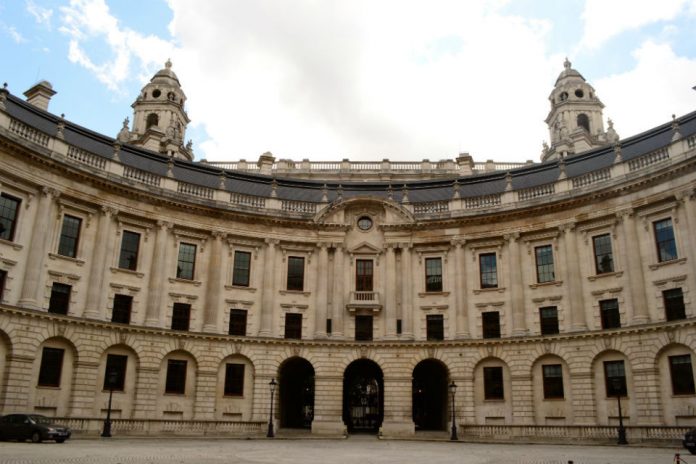- Platforms endorse the principle that no company should be profiting from COVID-19 vaccine mis/disinformation and commit to swifter responses to flagged content
- Platforms will step up work with public health bodies to promote factual and reliable messages
Digital Secretary Oliver Dowden and Health Secretary Matt Hancock have agreed with social media platforms new measures to limit the spread of vaccine misinformation and disinformation and help people find the information they need about any COVID-19 vaccine.
At a virtual roundtable to address the growth of vaccine disinformation, Facebook, Twitter and Google committed to the principle that no company should profit from or promote COVID-19 anti-vaccine disinformation, to respond to flagged content more swiftly, and to work with authorities to promote scientifically accurate messages.
As the UK moves closer to developing a safe and effective COVID-19 vaccine, Mr Dowden and Mr Hancock used the roundtable to welcome the progress these companies have made in strengthening their policies towards false coronavirus information and helping publicise the steps people should take to prevent the spread of the virus.
But the ministers raised concerns about the length of time misleading and false information about coronavirus vaccines remains on platforms, and called for swifter action to tackle such content.
Together the platforms have now agreed:
- To commit to the principle that no user or company should directly profit profit from COVID-19 vaccine mis/disinformation. This removes an incentive for this type of content to be promoted, produced and be circulated.
- To ensure a timely response to mis/disinformation content flagged to them by the government.
- To continue to work with public health bodies to ensure that authoritative messages about vaccine safety reach as many people as possible.
- To join new policy forums over the coming months to improve responses to mis/disinformation and to prepare for future threats.
The forums will see the government, social media platforms, public health bodies and academia increase their cooperation and ongoing information sharing to deliver a better understanding of the evolving threat caused by false COVID-19 vaccine narratives.
Digital Secretary Oliver Dowden said:
Covid disinformation is dangerous and could cost lives. While social media companies are taking steps to stop it spreading on their platforms there is much more that can be done.
So I welcome this new commitment from social media giants not to profit from or promote flagged anti-vax content, given that making money from this dangerous content would be wrong.
Health Secretary Matt Hancock said:
After clean water, vaccination is the most effective public health intervention in the world and has saved countless lives across the globe, eradicating one disease entirely.
I am encouraged that social media companies have agreed to do more to prevent the spread of dangerous misinformation and disinformation on their platforms.
We want users to have greater access to reliable and scientifically-accurate information on vaccines from trusted sources like the NHS so they can make informed decisions to protect themselves and their loved ones.
Vaccines are overwhelmingly safe and effective healthcare solutions. Ministers used the meeting, which also included representatives from fact-checking charities, academics and data experts, to highlight that robust action must be taken against misleading messaging and content online which could harm and discourage people from protecting themselves or their loved ones.
Throughout the pandemic the government’s Counter Disinformation Unit has been developing a picture of the extent, scope and reach of disinformation and working with online platforms to ensure appropriate action is taken.
The unit has observed a range of false narratives about coronavirus vaccines across multiple platforms, including widespread misuse of scientific findings and baseless claims challenging the safety of vaccines or plans for their deployment.
Ronan Harris, Google UK Managing Director, said:
Since the beginning of the covid-19 epidemic, we have worked relentlessly to promote authoritative content from the NHS and to fight misinformation. In the last few months, we have continued to update our policies to make sure that content contradicting scientific consensus about the virus is swiftly removed and demonetised. Today, we are redoubling our commitment to take effective action against covid vaccine misinformation and to continue to work with partners across Government and industry to make sure people in the UK have easy access to helpful and accurate Information.
Katy Minshall, Head of UK Public Policy, Twitter UK, said:
We are focused on protecting the public conversation and helping people find authoritative information on Twitter – in May 2019, we launched a search prompt that serves people with credible vaccine information from the NHS. In January this year, we launched a dedicated COVID-19 search prompt, ensuring that when people come to the service for information, they’re met with authoritative, public health information first. To date, over 160 million people have visited the Twitter COVID-19 curated page, over two billion times.
Since introducing COVID misinformation policies in March, and as we’ve doubled down on tech, our automated systems have challenged millions of accounts which were targeting discussions around COVID-19 with spammy or manipulative behaviours. We remain committed to combating misinformation about COVID-19, and continue to take action on accounts that violate our Rules. We look forward to continued collaboration with government and industry partners in our work towards improving the health of the public conversation.
Rebecca Stimson, Facebook’s Head of UK Public Policy, said:
We’re working closely with governments and health authorities to stop harmful misinformation from spreading on our platforms. Ads that include vaccine hoaxes or discourage people from getting a vaccine are banned, we remove harmful misinformation about Covid-19 and put warning labels over posts marked as false by third party fact checkers. We’re also connecting people to accurate information about vaccines and Covid-19 whenever they search for these topics. In the first months of the pandemic we directed more than 3.5 million visits to official advice from the NHS and UK government and we’re pleased to continue to support public health efforts.







